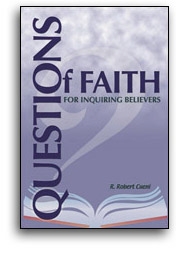SermonStudio
Must Religion And Science Conflict?
Bible Study
Questions Of Faith For Inquiring Believers
Must religion and science conflict? This question nags at people of faith. On the one hand, some in the scientific community have concluded that religion has outlived its usefulness and needs to be abandoned to the primeval forest of magic and superstition. At the same time, some religious folks insist that being faithful requires abandoning the claims of science because they do not adhere to biblical teaching. Have we no choice? Must we decide to be people of science or people of faith?


